A hard day’s work of a cargo airline Chief Pilot
EnglishMad work pace, a flood of medical equipment, spot-on logistics, astounding silence over the radio, airports without passengers, unpredictable situations, a schedule that changes several times a day - all in summary of the COVID situation by a Boeing 737 cargo Captain. "The uncertain but even more dangerous life has forged us together, as we did not know what awaited us on a given week," summed up the events of recent months Csaba Simon, Chief Pilot and Flight Ops Manager of ASL Hungary. As he told Növekedés.hu in an interview, he never considered for a minute to quit and let down his colleagues or the company. But neither did the others, as everyone here is passionate about the job.
We didn’t know much about the world of freight previously. Do you also feel that the role of the aviation cargo sector is being better appreciated now?
That's indeed the case, due to the virus. The increased interest is also due to the media, as news had to be generated. It was an excellent opportunity to report on the arrival of an airplane, especially on one landing at Budapest Liszt Ferenc International Airport with protective gear and medical devices.
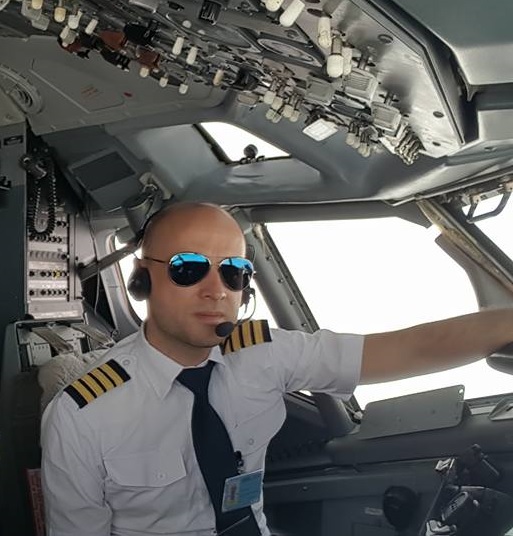 Csaba Simon Chief Pilot and Flight Ops Manager of ASL Hungary
Csaba Simon Chief Pilot and Flight Ops Manager of ASL Hungary
This is understandable, as cargo - as a global business - was the only quick link with which freight could be handled even in the most difficult days. If it weren't so, life would have stopped.
For many, aviation is associated with passenger transport and tourism. There are people who have not heard of the air freight market yet, until now.
I believe we managed to underline the importance of cargo in the minds of the public.
So much so that often even large passenger airlines used passenger aircraft to transport cargo, so many masks and protective gear had to be delivered to a destination.
Where is ASL Hungary positioned on the market?
Following the bankruptcy of Malev – Hungarian Airliens, ASL Hungary is the legal successor of Farnair Hungary, the oldest domestic airline in the country. The airlines of the ASL Group operate certain routes for express parcel companies within Europe under subcontracting agreements. The ASL Group is itself headquartered in Dublin. Although the Hungarian subsidiary is the smallest entity, but not less important in any way, as Hungary plays a major role in the distribution of Eastern European cargo shipments.
How did the payloads change due to the virus?
In an interesting way. Of course, the products that we ship was supplemented with medical equipment, as it is not often that masks, gloves and ventilators are transported by air.
Now air transport remained the only solution to get help to countries in need, within a few hours.
In recent months, there was complete chaos, as road border crossings have been closed, yet goods had to be transported from one place to another with top priority.
How did your company work back then and how does it work now?
We transport cargo exclusively for an express parcel company on our 6 Boeing 737-400 Freighter aircraft. Staying with healthcare, our sister airlines, ASL Belgium, used their wide-body Boeing 747 ‘Jumbo Jet’ aircraft brought the packages from China to Germany, from where we shipped them onwards to different European countries.
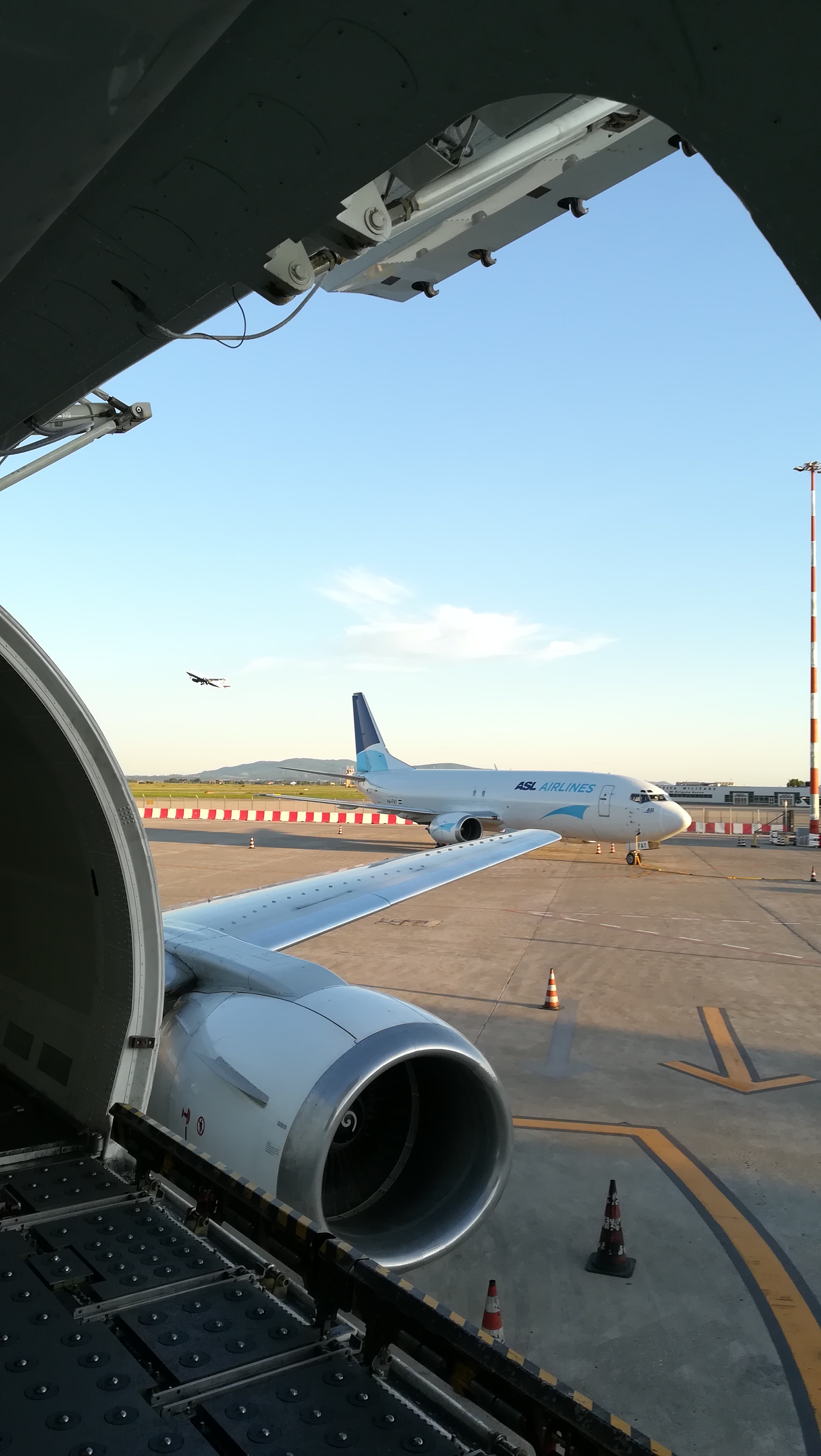
Are there any standalone charter orders?
Rarely. One example I remember is flying the equipment of a complete philharmonic orchestra, but for the most part this is not the case. Such transport occurs in less than one percent of the cases. Our Boeing 737s can “carry” 11 containers, up to 20 tons of payload in total. Our job is somewhat unique to the rest.
Can you share some details?
My typical workday is not like I get on the plane at one of the foreign airports in the morning and come home to Budapest in the evening. Our pilots will position at the beginning of the week and may not return to base for a week or two. It all depends on the requirements of our customer. 90-95 percent of the time our planes do not come to Budapest – irrespective of being under Hungarian registration and crew. We perform shipments across Europe, picking up goods from major distribution centers that we later spread across the continent.
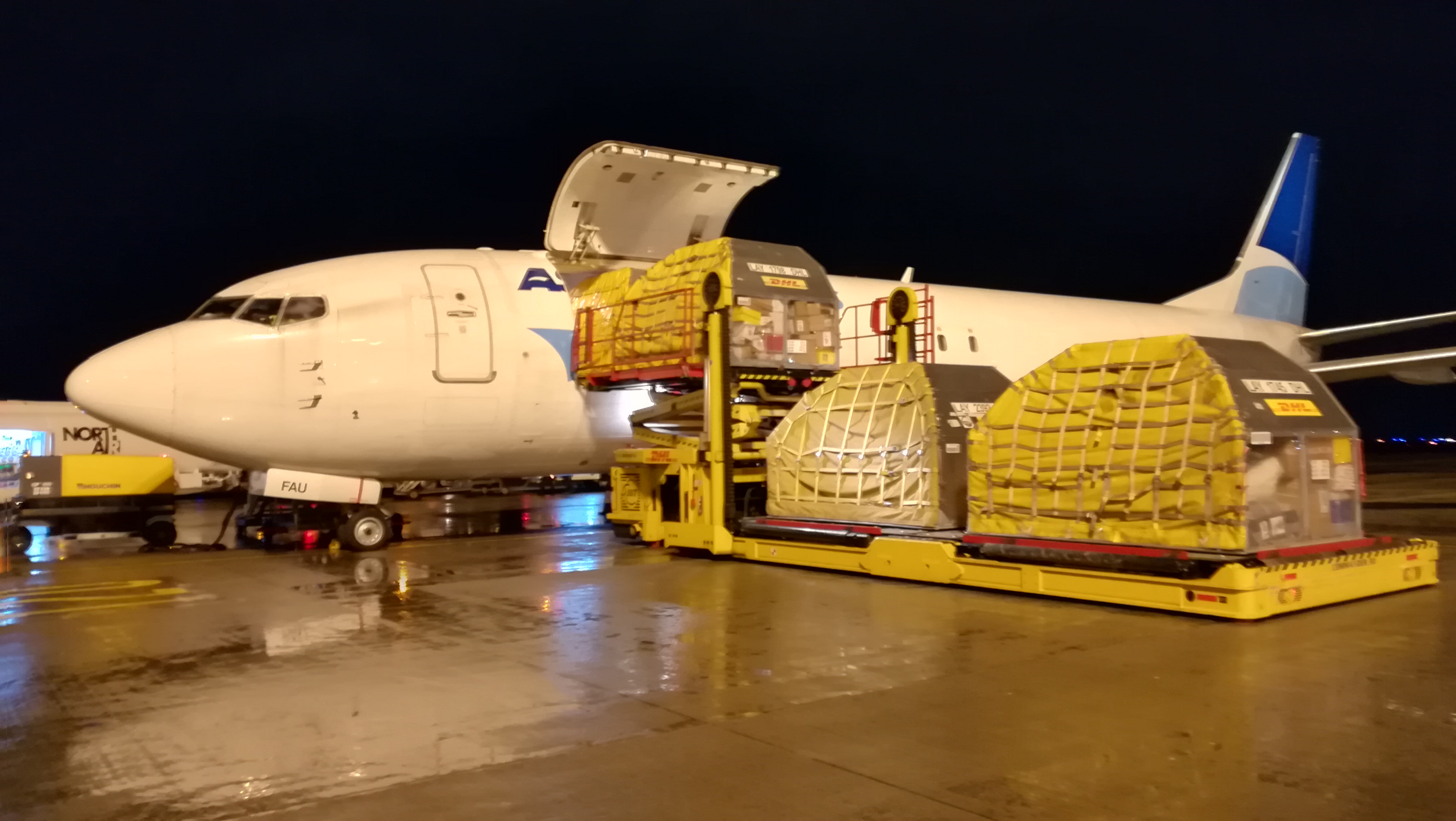
What have you experienced as a Chief Pilot and Captain over the recent months?
For me, both as Chief Pilot and as Captain, the most important thing is to follow our rules and procedures. The actual destination that I need to fly to makes no difference. The single most important rule is that of safety. Obviously, the more dangerous goods we transport, the more precautions are needed.
It is up to our customer to choose what we deliver.
I have transported ventilators just as well as any other specialty items.
Based on the above it is even the customer who is arranging and paying for ground handling.
It must have been a different feeling transporting healthcare equipment for a country in need though. Am I right?
By default, Captains are only notified of dangerous goods being transported. The lists we receive of course indicate the degree of danger the given product poses and where it is actually loaded on the aircraft. But if you are wondering what percentage of the respirators and protective equipment flown into the country over the past months was transported by us, I cannot provide a definite answer.
I would think you still have a clue.
Obviously a lot. I'm guessing because transporting protective gear, gloves, a mask is not considered dangerous cargo that needs to be brought to Captain’s attention. I do happen to have information that we flew tons of medical equipment within Europe. It was an absolute priority among the rest of the goods.
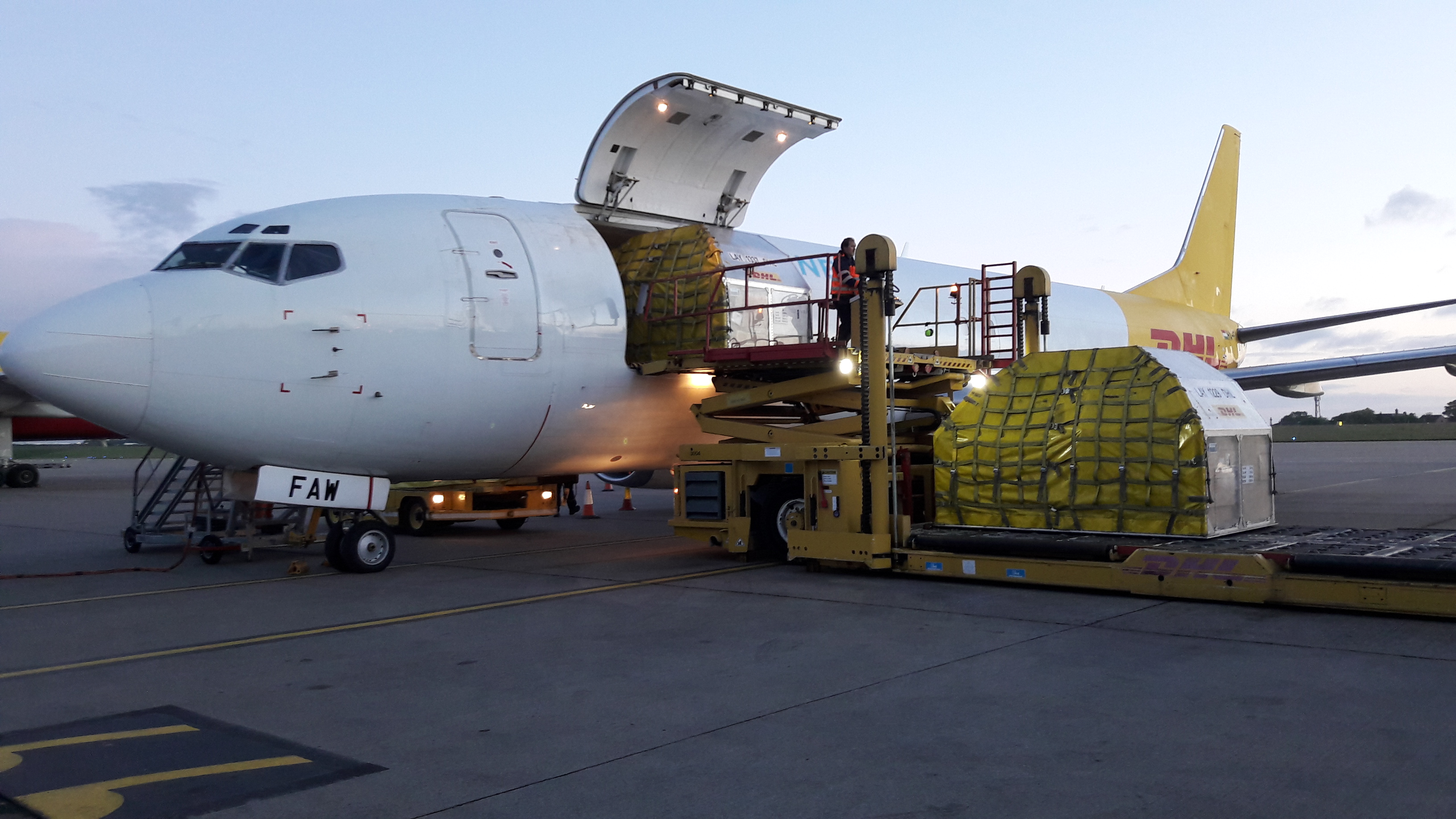
To Budapest as well?
In the most difficult times, yes. The aircraft was loaded full. Ventilators are considered special goods.
Why?
The equipment itself is not necessarily a dangerous shipment, only if it contains a battery. But there may be some that require special care during transport (i.e. loaded in boxes into containers) Any electronic device that contains a battery is considered hazardous. That being said, the Captain will know about such shipments.
Over the past couple of months, how much extra pressure did you take?
When the virus appeared in Italy, the first weeks were the most difficult, as more and more countries isolated themselves from the outside world.More and more restrictions were announced with our plans being continuously overwritten. We had to process huge volumes of information literally every single hour.
What was the biggest challenge?
I could list these all day long. We had no information from third parties for example, if we could leave the given airport. What kind of certificate or proof we need in a given country, or in which hotel we are allowed to stay. I mean, can we stay at the contracted hotels at all, as the vast majority of them have already been closed. Or where and what we will be able to eat.
The operating environment was literally changing day by day. Although cargo pilots were granted an exemption, there are strict rules on rest periods and procedures.
What do you think of the response times, by country?
I think there were places where they were late to react to change. When they did, conditions slowly returned to normal. Overall, the crisis has been handled well in Hungary.
As the weeks went by, did life get back to normal for the crews?
This is far from true. In most cities with airports, a few hotels were designated where pilots and truck drivers could rest. These were isolated parts, just as in BUD.
Pilots are assigned a schedule based on regulations, which includes where and how long to rest on a given workday.
Often a policeman stood guard on the scene.
There were destinations with hotels which the crew was forbidden to leave. The gym was closed, and even breakfast was brought up and put beside the door. In several hotels, you could only leave the room when you checked-out, but even this was arduous.
Because?
There were some countries where the airport and hotel route could only be traveled by one person per taxi. In Greece, two cars were actually dispatched to pick the two of us up. This went on for weeks. We had to rest under such conditions with many of my colleagues bringing food for themselves from home.
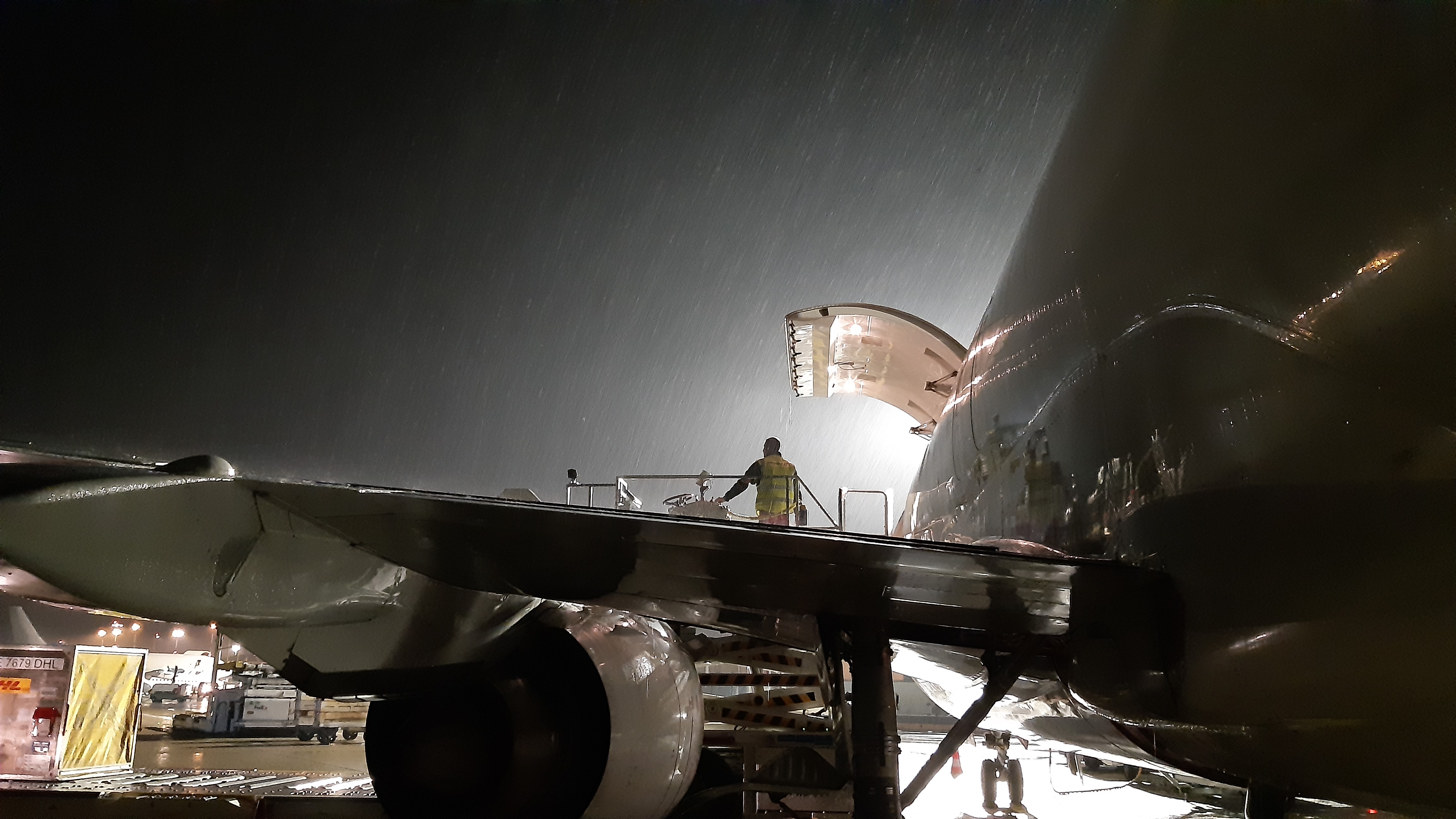
Did your employer ask if pilots accepted work under such circumstances?
Yes, but it's not that simple. From one week to the next, the new situation dragged us in as the cargo flights never stopped. By the time we found comprehensive solutions, so much time had passed and so much experience had been gained, that the issue had become obsolete. Like I said, sometimes we spent 2-3 weeks abroad, away from loved ones in a gloomy environment.
Because of the day and night flights?
Yes. Eight out of ten cargo flights take place during night. This is so over much of the world, so pilots often rest during the day.
Just because there is a virus, regulations concerning flight ops cannot be ignored. Once passenger transport came to a standstill, the new challenge we faced was how we can position, rotate our crews home and for duty on given routelines.
What do you mean by that?
By default our pilots are positioned on scheduled passenger flights because they need to be replaced or diverted to another routeline. Under the stated conditions however, there was no flight that would have operated, so we had to arrange staff exchanges with DHL, moving aircraft to Budapest.
It took tremendous logistics to move our staff.
I would say, this was perhaps the greatest challenge.
Where on cargo planes can anyone other than crew travel?
Our planes have extra seats installed in the former forward kitchen area. There are no further seats elsewhere however. Thus, six pilots can travel on any plane: two are flying, and four sitting in the back.
How many requests for shipment have you received from external companies, or even the government?
Lots of inquiries came in, but the capacity of our planes is finite, as the Boeing 737 is medium in size. They can fly for 3.5 hours at full load. This is deceptive because we can reach any corner of Europe in such time - from Ireland to the south of Italy - but the Middle East for example would be too far.
During these few months, did you work more than usual?
My work changed to the extent that I was more in the office, given fact that the Chief Pilot is also responsible for organizing and supervising Flight Ops in general. I did perform flying and instructing on our routelines as well though. The Hungarian name for this position is deceptive, the English one sheds more light on the tasks of: “Flight Operation Manager”, but it is also called Flight Director.
More and more catchy titles - what is your task?
This is a mandatory position at all airlines. It is performed by the person who is legally responsible for the Flight Operations at the company, including Crew Control activites, flight manuals, documentation and procedures, to name just a few.
Basically manages the entire Flight Operation and responds to challenges without delay.
For example, we had to arrange that at certain airports, pilots could not even leave the plane. Unloading-loading in itself takes close to an hour. Under the given conditions, local staff at the local airport were doing the walkaround, checking the plane, instead of the Captain. This is a huge change, and a division of responsibility, tied to many approvals and procedures.
Did you experience sufficient information flow?
We have around sixty pilots. Because the situation was changing daily, or even more often than that, a couple of colleagues actually received the news in the air of how the virus is spreading in given countries and what measures have been taken. My eyes were set on organizing the safety of staff and the need to act as quickly and efficiently as possible.
How did your family, and the family of colleagues take it all?
I will be very honest. Even if we’re passionate about our job, everyone is afraid of uncertainties. The worst part was that at first it was hard to gauge how deadly this virus would be for us. This could not be understood from statistics alone. Of course, we also talked a lot at home about what to do, how to proceed.
What did you come up with?
As you can see, I'm here. Fortunately, compared to many European states, our country reacted relatively well. I am saying this as we actually saw changes take place at different destinations during the course of our work. When the mortality rate stats came out, I was somewhat reassured knowing the age of our pilots. Also, we have to keep in mind that due to the strict fitness standards for pilots, we’re talking about basically healthy people with good immune systems.
The scale kept tipping between family, profession and the company, in these difficult times.
We asked ourselves: if we do not do it, who will?
Did you get an answer?
Not really. Again, the crews are passionate about their job. And here let me relate back to what I mentioned in the beginning: it was at this time that the guys and girls realized how important and valued their work has become.
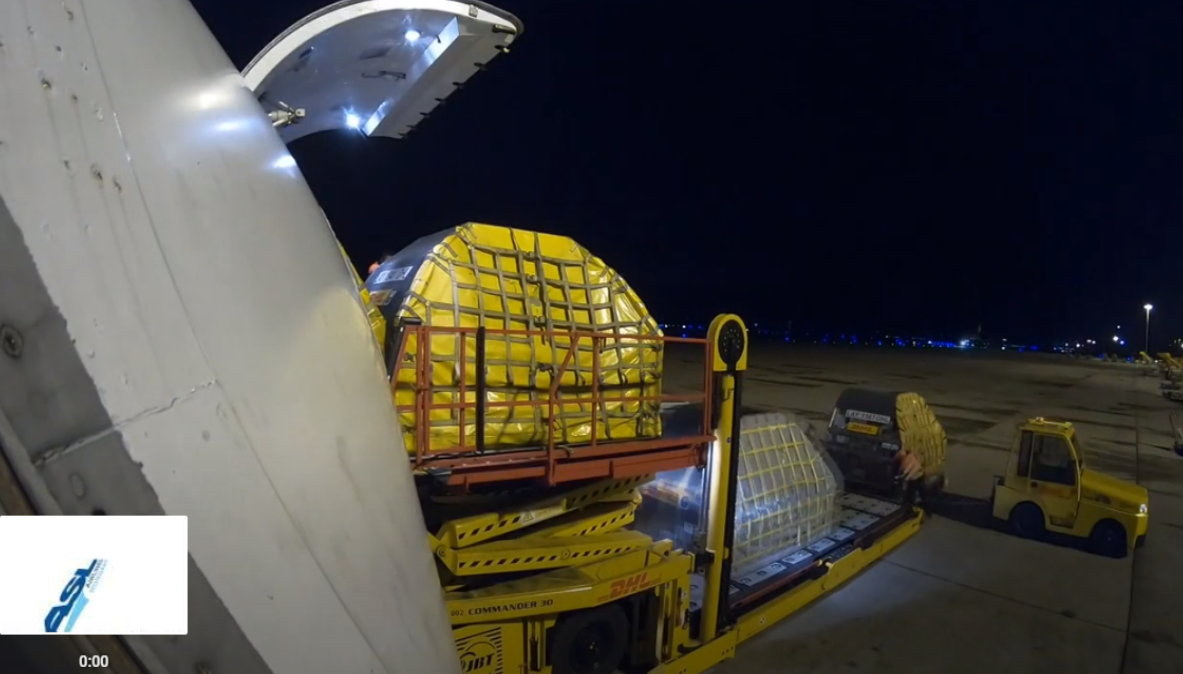
Of course not in a minute, but everyone understood the essence of our mission. I am very proud of the team, both the pilots and colleagues working in the office.
None of my sixty pilots ever said that he/she was wanting out.
All this despite the fact that many of them have small children or grandparents living with them. When we returned home from our multi-week stay abroad, many moved away for a voluntary solitary quarantine to avoid infecting anyone.
Wasn’t the two weeks off work an exaggeration?
Normally, one week of flight and one week of home stay is the basis of crew rostering. This has now been overturned as we had access to very limited positioning and the possibility of 2 weeks of mandatory quarantine loomed ahead. Not to mention the fact that whoever performed a tour of duty for two or more weeks, under the given circumstances, cannot recuperate in just 1-2 days.
Did you not want to take part in delivery from China, the main healthcare distribution center?
Indeed, we thought about it a lot, but came to the conclusion that our Boeing fleet of 737s is not suitable for this in terms of economical operation. Perhaps the best example would be to take a taxi to Beijing. It’s possible, just not worth it. There was also plenty of work here in Europe.
Which countries do you mean?
Germany, Italy, France, England, Ireland, Greece, Austria, Croatia, to name just a few. We also fly several domestic routes within some of these.
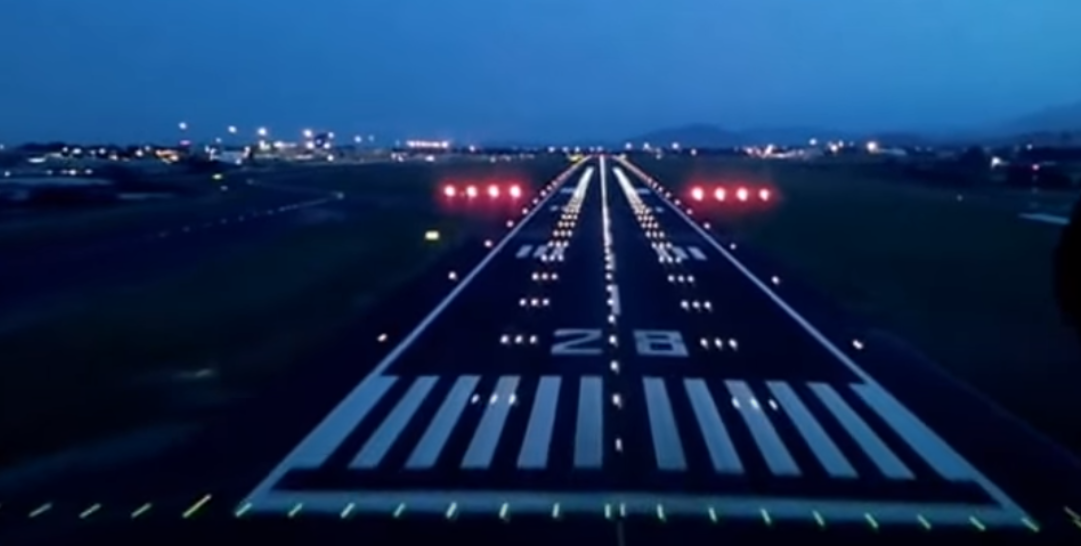
How did your lives change seeing that 99 percent of passenger air traffic came to a halt?
Basically, it did not affect us. Like I said, we fly at night, so there are fewer passenger flights at this time of day anyway, so there is less overall traffic. In our case goods are delivered during the day, collected in the afternoon and loaded in the evening, and then with 2-3 landings aircraft deliver cargo to the destination country. Air cargo is a cycle.
There are several cargo centers within Europe. Goods often pass through multiple distribution centers along the way. This did not change during the virus situation, or as you mentioned, in the reduced air traffic environment.
Of course, night operation is not cheap as the landing costs (slots) are very high. On average, a larger airport distributes 6-12 slots per night. This has always been the case, and has not changed under these circumstances either. It’s great that we obtained slots for the night in Paris and London - not everyone succeeds in getting them.
Then night ops remained basically the same. What else did you experience?
Awesome silence and abandonment. Now, this was really different. There was basically no transmission over the radio.
Where previously we could barely transmit due to high transmission traffic, there was hardly a word being said, neither the voice of a pilot nor an ATC controller. It was indeed a terrible feeling.
We flew for example for 60 minutes, and only had to change frequency twice in the usually crowded European sky. It was essentially time travel back to the 70s, when transmissions were so scarce.
Has the relationship with air traffic controllers become more cohesive?
Professionalism, of course, remained all along. Sometimes we had the feeling we were greeted like “finally an airplane that can be controlled”. We actually greeted each other far more, as there was both an opportunity and time to do so.
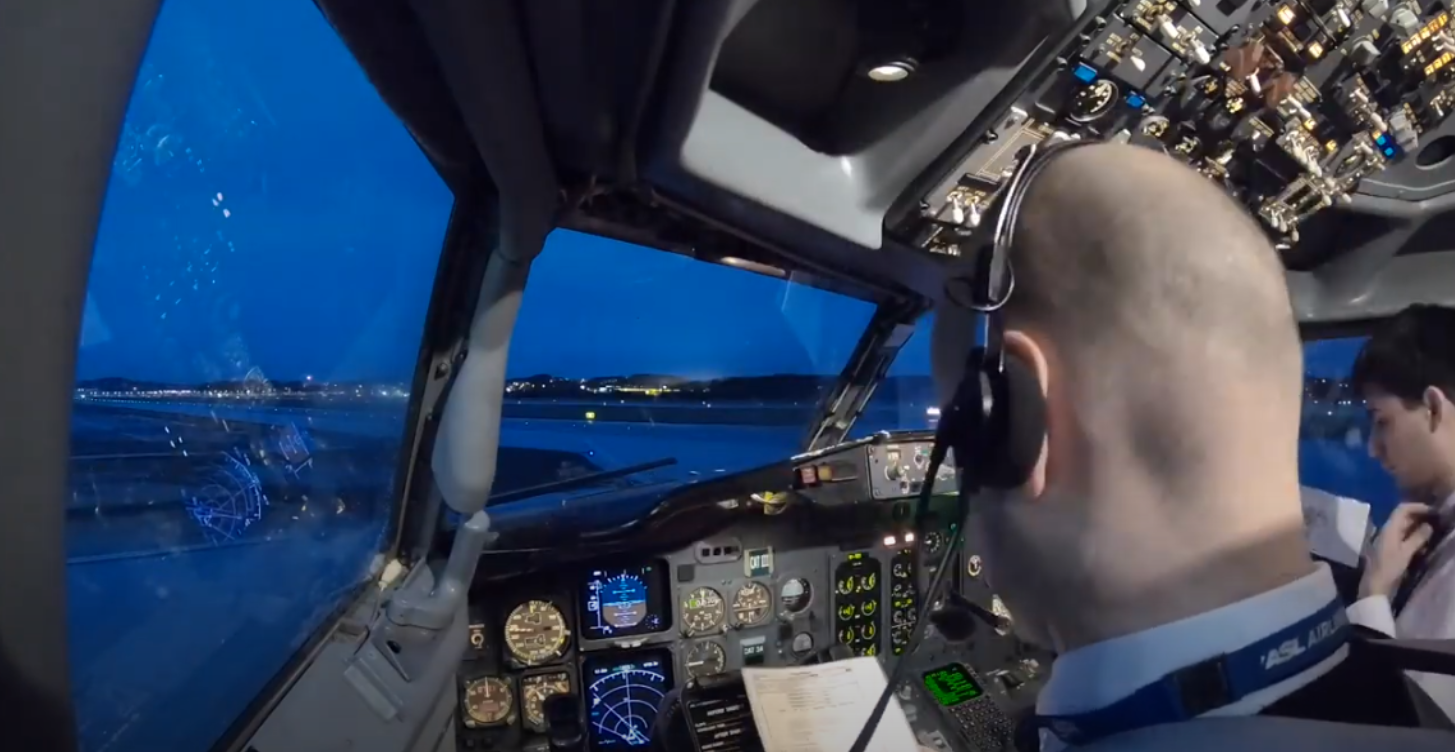
The community of people working in aviation has become more cohesive. I think it's the same with other professions in similar cases though. Of course, I also flew daytime flights. It was very saddening to see these ghost airports, parked passenger aircraft, deserted terminals, knowing that at that very moment a lot of our colleagues no longer have jobs.
Did you never feel sick?
We have done and will do everything in our power for safety, thus our aircraft are disinfected every 24 hours.
This includes spraying the cargo area, the forward kitchen and the cockpit itself. What I see changing is hotel rules being relaxed in several countries, which I think is a good sign as things are finally changing for the better. Currently 80-85 percent of our current traffic is “traditional” freight transport. This is a positive sign that the hellish weeks are over.
